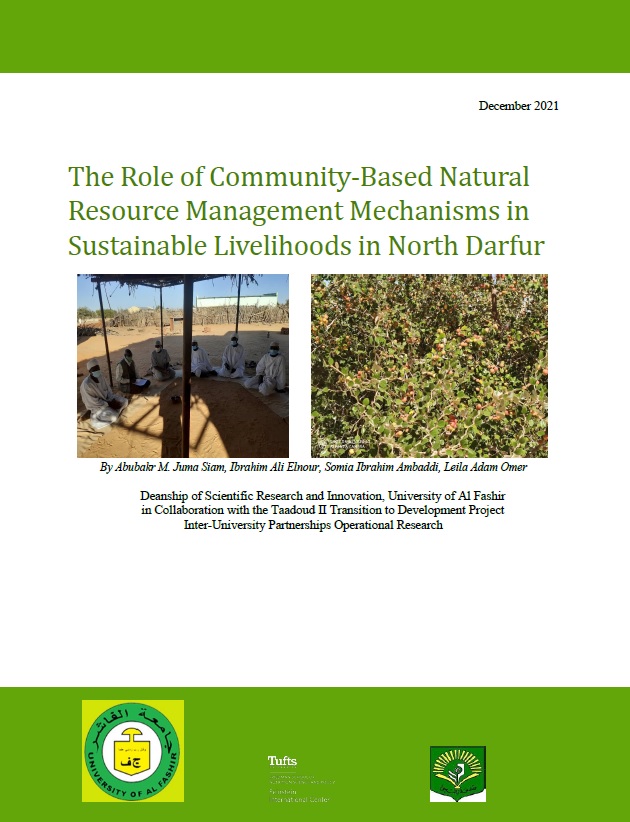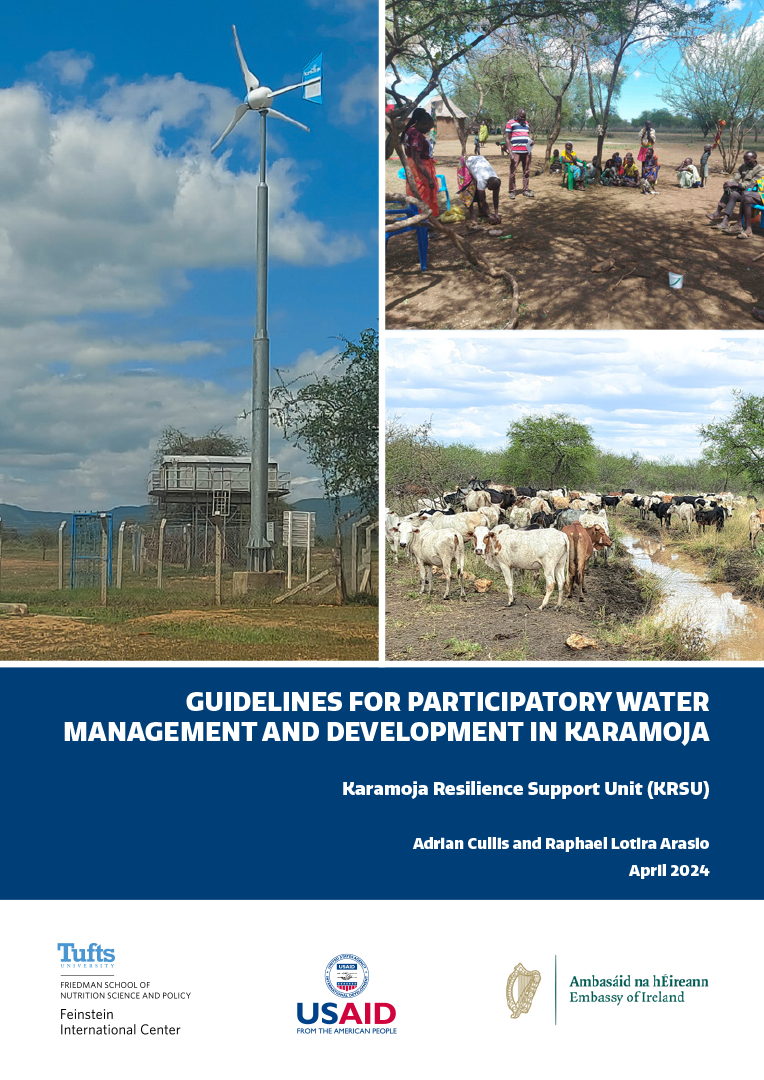Researchers from the University of Al Fashir in North Darfur, Sudan conducted this study to identify the ways in which access to and use of natural resources in North Darfur is effectively regulated through community-based natural resource management (CBNRM) mechanisms and what impact these mechanisms have on people’s livelihoods.
The study revealed that there are CBNRM committees in the majority of the studied communities. Their crucial strength is the nomination of committee members by the community themselves. Thus, their legitimacy comes from the community which provides the power to work and succeed in various fields of natural resource access and livelihood systems.
The study discusses key findings related to the role that CBNRM committees play (and do not play) in regulating livelihoods and ecosystems.
The data were collected from three localities: El Fashir, Daresalam and Kalemindo. Seventeen villages/communities/government officials where the Taadoud II program operates were selected for the study.
The study was conducted in collaboration with the Taadoud II Project’s inter-university partnership between the Feinstein International Center at Tufts University; the University of Al Fashir in North Darfur, Sudan; and the University of Zalingei in Central Darfur, Sudan.







